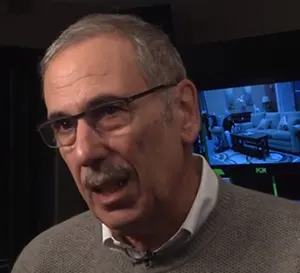Published on: May 22, 2025 at 3:48 pm
Tighter enforcement of immigration regulations and cuts in research grants under the Trump administration are having negative impacts on academic work in general and on not-for-profit professional associations, including the Academy of Management, in particular.
Academy of Management (AOM) Scholar Peter Bamberger of Tel Aviv University, the president of AOM, says you can see it clearly in the run-up to the AOM’s annual meeting in Copenhagen. Among other issues, there is concern about how the visas of foreign students are being treated by authorities such as U.S. Immigration and Customs Enforcement (ICE).
“A good number of the research papers that have been accepted for presentation come from doctoral students from the United States; many of the doctoral students in the United States are foreign doctoral students; and some of the foreign doctoral students in management in the U.S. are considering the potential costs of leaving the U.S. to present their paper,” Bamberger said.
“We are concerned that some of these foreign Ph.D. students, rather than taking that risk, may opt to stay at their offices in the USA and not present their research, which would obviously be deleterious to our science,” he said.
“It would be very unfortunate if innovative papers and important findings are not presented at the 2025 conference because foreign U.S.-based scholars are concerned about the validity of their visas.”
Bamberger said he doesn’t know any AOM members whose students have been deported, but he does know that some AOM scholars are among those being hit by cuts in federal funding for research.
“Those individuals who had grant money to study diversity, equity, and inclusion—that’s all gone,” Bamberger said. “Those individuals don’t have the grants anymore and as a result, the research stops.
“Now, it’s the right of a government to determine how it wants to allocate funding for research, so I can’t necessarily say that this is something that’s undemocratic or unfair,” he said. “That was the result of the election, but it is having a problematic effect.”
Bamberger said he sees an ironic example of how cuts in research can have unexpected results.
“A lot of that research on DEI is not necessarily pro-DEI,” he said. “For example, my own research on gender and racial pay equity suggests that contemporary policies oriented towards enhancing the equity have significant unintended negative consequences, including compensation compression.
“So when you cut off the funding for all research that mentions certain keywords assumed to be related to DEI, you’re cutting off the funding of people doing research that indicates problems with DEI policy, as well as perhaps supporting policies that may be favored by certain politicians.”












